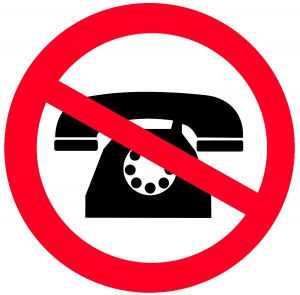May 28, 2015
 On Wednesday of this week, the Federal Communications Commission (the “FCC” or “Commission”) announced a new proposal circulated by FCC Chairman Tom Wheeler that would make fundamental changes to the Commission’s enforcement of the Telephone Consumer Protection Act (“TCPA”). According to Chairman Wheeler’s announcement and the Commission’s accompanying fact sheet, the FCC could soon rule on more than 20 pending petitions concerning robocalling, commercial text messaging and telemarketing calls.
On Wednesday of this week, the Federal Communications Commission (the “FCC” or “Commission”) announced a new proposal circulated by FCC Chairman Tom Wheeler that would make fundamental changes to the Commission’s enforcement of the Telephone Consumer Protection Act (“TCPA”). According to Chairman Wheeler’s announcement and the Commission’s accompanying fact sheet, the FCC could soon rule on more than 20 pending petitions concerning robocalling, commercial text messaging and telemarketing calls.
What provisions of Chairman Wheeler’s new proposal should be especially concerning for telemarketers?
Definition of “Autodialer”
Over the years, this blog has closely followed the FCC’s attempts to expand the TCPA’s definition of an “Automatic Telephone Dialing System” (also known as an “autodialer” or “ATDS”), as well as the numerous federal court opinions that have rejected the Commission’s authority to modify or definitively interpret any language contained in the TCPA.
On Wednesday, Chairman Wheeler announced that his proposal would further “clarify” the autodialer definition. According to the FCC’s fact sheet, “the rulings would ensure robocallers cannot skirt consumer consent requirements . . . by calling from a list of numbers.” This proposition is concerning for telemarketers who operate using manually-compiled call lists or other means of human intervention.
Revocation of Consent
Under existing regulations, autodialed telemarketing calls require the recipient’s prior express written consent. The new proposal would allow consumers to revoke their consent to receive robocalls in any reasonable way and at any time.
Chairman Wheeler’s proposal follows a string of like-minded decisions, including a declaratory ruling from the FCC in 2012 and a number of federal district and circuit court opinions, which have endorsed a consumer right to revoke prior consent.
Telemarketing to Reassigned Numbers
Chairman Wheeler intends to limit telemarketing calls made to reassigned telephone numbers (calls to numbers where consent was provided by the number’s previous subscriber). Under the new proposal, “if a phone number is reassigned, callers must stop calling the number after one call.”
Robocall-Blocking Technology
Chairman Wheeler’s proposal would also give the green light to new, robocall-blocking technology. “The FCC wants to make it clear: telephone companies can – and in fact should – offer consumers robocall-blocking tools,” Wheeler stated.
Telemarketers: Stay Tuned
The Commission is scheduled to vote on Chairman Wheeler’s proposal on June 18, 2015. If approved, the rulings are slated to become effective immediately and impose additional regulatory requirements on telemarketers. Despite calling these proposed rulings “one of the most significant FCC consumer protection actions since it established the Do-Not-Call Registry with the FTC in 2003,” the Commission has not released the full-text proposal to the public at this time.
This blog will explore Chairman Wheeler’s proposal in greater detail as more information becomes available. If you are interested in learning more about this topic, need to review your telemarketing practices and procedures or if you are facing an investigation from a state attorney general or other regulatory agency, please e-mail us at info@kleinmoynihan.com, or call us at (212) 246-0900.
The material contained herein is provided for informational purposes only and is not legal advice, nor is it a substitute for obtaining legal advice from an attorney. Each situation is unique, and you should not act or rely on any information contained herein without seeking the advice of an experienced attorney.
Attorney Advertising
Related Blog Posts:
FCC Issues New TCPA Ruling on Telemarketing Liability
FCC Finds Robocalling Service Provider Liable for TCPA Violations



